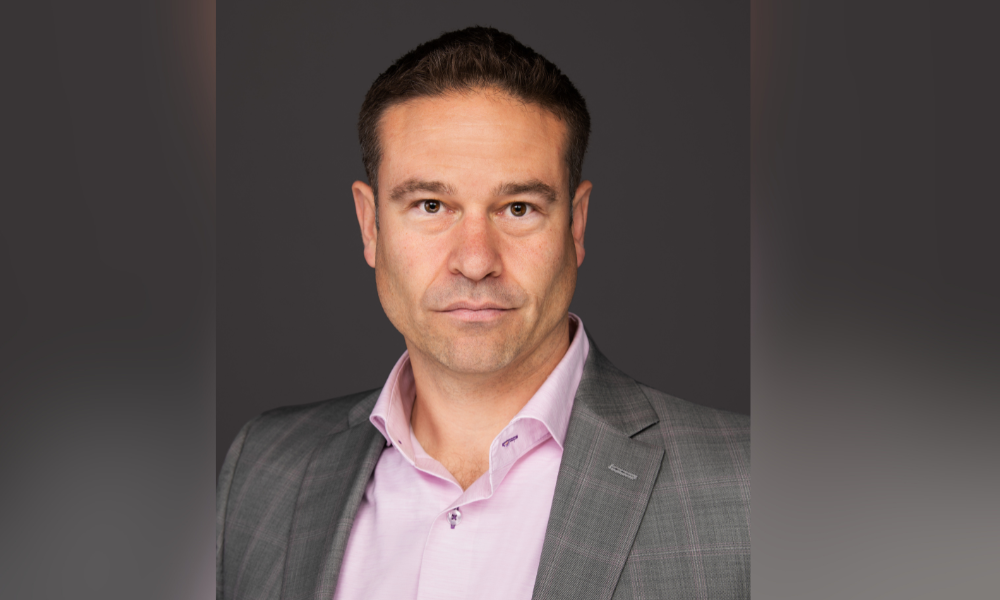‘World of work’ would be covered by new labour standard

A new convention created by the International Labour Organization (ILO) is being applauded by CPHR (Chartered Professionals in Human Resources) Canada and the Ordre des conseillers en ressources humaines agrees (CRHA) in Quebec.
C190 - Violence and Harassment Convention, 2019 concerns the elimination of violence and harassment in the world of work.
“Following the #MeToo movement, there was a high level of awareness worldwide… around harassment in the workplace. So, it just made sense that ILO took action and [brought] this topic forward with all the countries that were present. It probably should have been there years ago, because it's been a problem in the workplace for many years — which was made quite public in the past two years — but it's a good thing that they took action and made that statement with the countries that were involved,” says Manon Poirier, CEO of the CRHA.
“The legislation in different provinces is totally uneven on the topic. So hopefully, if Canada signs this, and with what the federal government has done for organizations under federal jurisdiction, it will inspire other provinces that might not be quite up to speed with their own legislation.”
The push to end violence and harassment in the workplace — particularly gender-based violence — has been on the trade union movement’s agenda for decades, says Marie Clarke Walker, secretary-treasurer of the Canadian Labour Congress in Ottawa.
“And so, it seemed like the right time to do this. If you ask me, I would say it was past time for it to be done. And, hopefully… when countries start to ratify this, we will see the impact and… less complaints with respect to violence and harassment.”
Broad coverage
Among other things, the ILO document recognizes that violence and harassment can constitute a human rights violation or abuse and includes gender-based violence and harassment.
The convention says this kind of behaviour can be particularly harmful to women and prevent them “from accessing and remaining and advancing in the labour market.”
The ILO specifies the convention protects workers in the world of work, including people “irrespective of their contractual status,” those in training, interns, apprentices, workers whose employment has been terminated, volunteers, jobseekers and job applicants.
As part of the convention, members would be expected to ensure that: relevant policies address violence and harassment; a comprehensive strategy is adopted; enforcement and monitoring mechanisms are enforced; victims have access to remedies and support; tools, guidance, education and training are developed; and there is an effective means of inspection and investigation of cases of violence and harassment.
Supplementing the convention is Recommendation 206, which outlines steps members should take with regards to violence and harassment and issues such as: collective bargaining; occupational health and safety provisions; workplace risk assessments; remedies around compensation, reinstatement, compensation and legal fees; and training and awareness-raising.
Informal workers covered
This is the first convention that deals specifically with the issue of workplace harassment and violence, and it’s also the first to apply to everyone—while also including domestic violence, says Clarke Walker, who also serves as the worker spokesperson for Canada.
“It talks about job applicants, jobseekers, those who are looking for jobs; it talks about those who've been terminated, those who are in the informal sector,” she says.
“We wanted to make sure informal workers were covered, because they're the ones who have to deal with violence and harassment most often. [And]we wanted to make sure that there was a gender component to this [because]women are the ones that tend to deal with not just the effects or the impact, but they're the ones who are usually the victims of violence and harassment.”
And while Canada’s governments and employers have done a lot in this space, there’s still a need for ratifying this kind of convention, says Clarke Walker.
“Not everybody is at the same level; not everybody’s in the same place.”
It looks like Canada is well on its way to being one of the first member states to ratify this convention, especially considering the chair (Rakesh Patry, director general – international, intergovernmental labour affairs, labour program, Employment and Social Development Canada) and the worker spokesperson were both Canadians, she says. Once ratified by two member states, the convention takes effect one year later.
“Canada worked really, really hard to make sure that we got inclusive language. [That] tells me that this is something that they are supportive of.”
Changing attitudes
The ILO also talked about the importance of changing attitudes to eliminate violence and harassment in the workplace. And that means tackling the underlying causes, including discrimination, gender stereotypes and unequal gender-based power relations.
It’s about education and one-on-one conversations with people so they understand everyone has a role to play, says Clarke Walker.
“The labour movement [has] been doing this for a little while now. And you look at something like domestic violence leave… two years ago, nobody was thinking about that. And through us talking about it in the committee, and with other trade unionists, globally, people now understand why that's important. And a lot of the governments are now starting to put policies or legislation in place that [help] domestic violence survivors or people going through domestic violence.”
Legislation is not always a solution to everything, so attitudes are important, says Poirier.
“It’s [about] how do organizations and employers make sure that they're quite clear about the expectation around behaviour, proper behaviour, and then actually intervene when there's people that don't behave accordingly.”
Sometimes, there's tolerance in different organizations, she says.
“And that creates a culture where it's OK to adopt [this bad] behaviour. Just the simple fact of recognizing the existence of harassment and that kind of behaviour and the impact it has [is important]. I think we underestimated, and before the #MeToo movement, the impact of harassment within the workplace. It not only touches a person that is a victim or alleged victim of harassment, but it impacts the colleagues. We've seen with some different cases how it destroys organizations that no longer exist or barely exist because of the behaviour of their leader… So, we need to change attitudes and it happens with prevention, but it also happens with the right intervention.”




